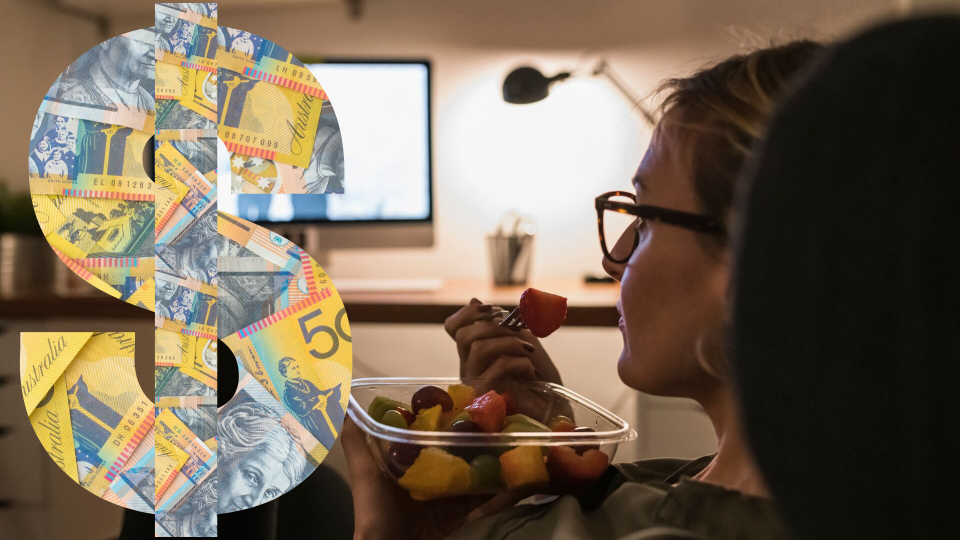Annoying expense Aussies spend $1.7k on, even though they try not to

Most Australians agree that Thai delivery and daily cappuccinos, while nice, are an unnecessary expense.
But that doesn’t mean we stop buying them, new research from Suncorp has revealed, with Australians’ bad food habits seeing them break the budget every week.
Related story: 5 ways to get your budget into shape
Related story: Your Uber Eats is about to get more expensive
Related story: YouTuber Josh Pieters sold microwaved ready-meals on Deliveroo – and got away with it
“We all have good intentions when it comes to our finances, but for many of us our brains go into auto-pilot when it comes to food,” said Suncorp behavioural economist Phil Slade.
“For example, most of us agree regularly spending money on take-away food, and barista-made tea and coffee is an unreasonable expense, yet we’re spending $140 a month (or $1,680 a year) on these items.”
Suncorp’s Cost of Food report found that one-in-four Australians don’t stick to their food budget, while one-in-three don’t budget for food at all with the average Aussie spending around $300 a week on food.
“As we get busier, we tend to ‘throw money’ at painful problems or situations as an easy solve – hunger or boredom are examples of painful problems we tend to solve by spending on food,” Slade said.
“This is why we shouldn’t go shopping when we’re hungry, as our brains are more focused on addressing the hunger than thinking about our finances.”
The rise of food delivery services
How many times do you order take-away or delivery a week? It’s almost certainly more than you would have 20 years ago.
That’s because food delivery services are perceived as a way to make life easier - but they’re also the biggest food budget black hole.
“They’re ... giving us another outlet to spend money in moments when we’re experiencing pain (hunger), which in most cases hasn’t been budgeted for,” Slade said.
“It appears we’re also overspending on groceries (29 per cent), eating out (25 per cent), take away (24 per cent) and alcohol (23 per cent). If people find themselves regularly overspending on a certain item, they should consider reviewing their spending behaviours, or make adjustments to their household budget to more honestly reflect the additional expense.”
Where does our food budget go?

Over the course of a week, this is how much the average Australian would spend on different types of food:
Groceries: $135
Eating out: $52
Alcohol: $31
Take away: $22
Coffees/teas: $13
Food delivery services: $12
Supplements: $12
Health foods: $11
That’s a total of $288.
How to save money on food
Don’t shop when you’re hungry is a great place to start – this means you only buy what you need, and don’t walk away with a bag of chips, a tub of icecream and 16 bananas.
Additionally, Slade said it’s a good idea to only plan meals a few days in advance so that you only buy what you need.
“This also allows you to buy what’s on special, and avoid food getting lost in the freezer.”
Grocery shopping online also helps you avoid temptation – you’re not going to wander past the chocolate aisle, for instance. And it means you can plan out healthier snacks, like pieces of fruit and nuts.
Leftovers can be even better the next day, with curry a perfect example of this. Additionally, they’re a cost-effective way to cut expenses at lunchtime the next day.
And if you have space, growing your own herbs or vegetables can help save you a few dollars every week, plus you score endless bragging rights when you bring your home-grown salad into work for lunch the next day.
The Yahoo Finance All Markets Summit is on the 26th of September 2019 at the Shangri-La, Sydney. Check out the full line-up of speakers and agenda for this groundbreaking event here.

 Yahoo Finance
Yahoo Finance 

